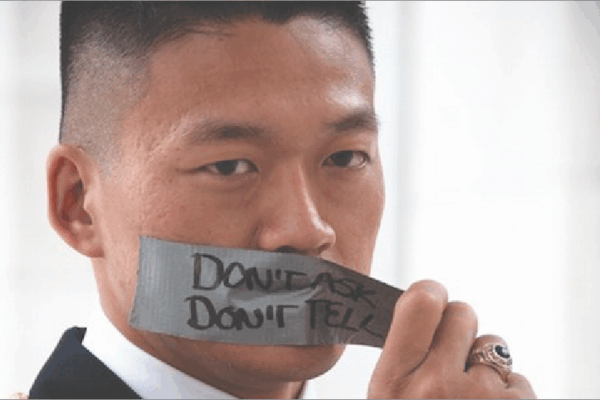No? Well then, you must have heard about gay soldiers causing their comrades to desert their units just as an attack was most imminent.
No? You know what? I didn’t either.
A year to the day after the military’s “Don’t Ask Don’t Tell” (DADT) followed the Gatling gun, the trebuchet and the cavalry charge into the military history books, nothing has changed -- nothing, that is, other than soldiers taking partners to military dances, tearful same-sex reunions, and other images of lesbian and gay troops serving their country openly and proudly.
According to a study released today by the Palm Institute, “the repeal of DADT has had no overall negative impact on military readiness or its component dimensions, including cohesion, recruitment, retention, assaults, harassment or morale.”
No overall negative impact. Service members report no drop in unit cohesion or military readiness, the repeal has had no effect on recruitment, and that mass exodus of troops? It never happened.
Not that any of this is deterring those who opposed the repeal in the first place, among them Sen. John McCain, Michelle Bachman and the Family Research Council. The report says that as news spread that the earth had not yawned open to swallow the Pentagon, opponents “have adjusted their forecasts by emphasizing the possibility of long-term damage that will only become apparent in the future.” Disgraced former Marine and Fox News host Oliver North said that repealing the policy was akin to treating troops like “rats in a radical social experiment.” GOP presidential hopeful Mitt Romney last year said during a Republican debate that “I believe that "don't ask/don't tell" should have been kept in place until conflict was over.”
That’s why the battle won’t stay won if we don’t stay vigilant. Even though the repeal isn’t an issue for most Americans and -- more importantly -- isn’t an issue for troops themselves, opponents of LGBT equality remain entrenched. That’s because they remember the last time the military became a front in the fight for civil rights -- following World War Two, when African Americans finally could serve alongside whites -- and the social barriers that fell in the decades that followed. They know that once you’ve risked your life alongside someone, it’s difficult to deny him or her basic civil rights.

